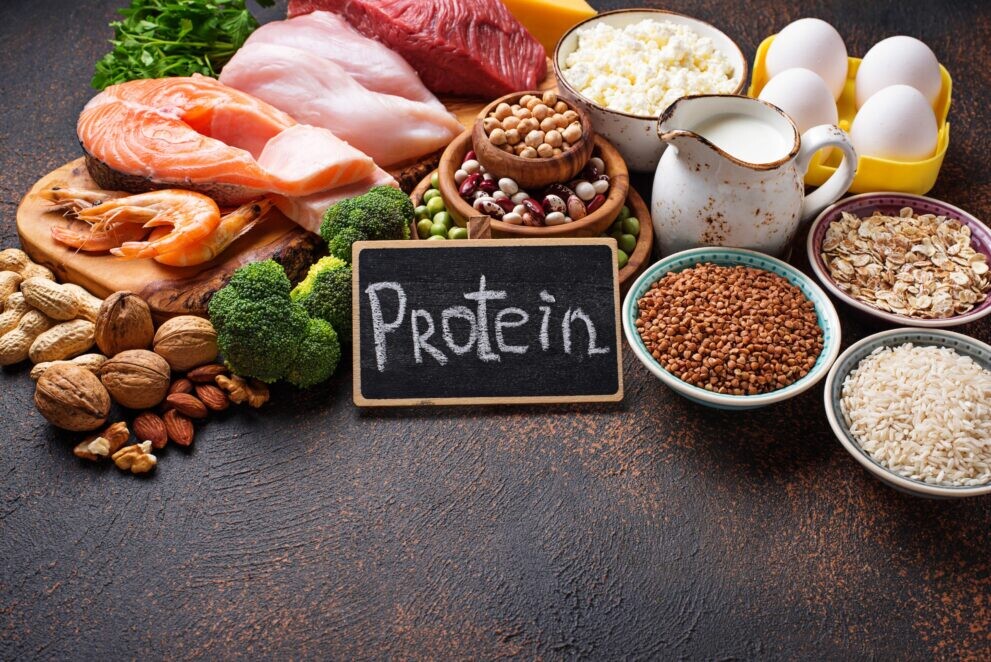blog
other posts

Which are worth limiting?

Enzymes are substances that make life possible. They are composed of amino acids and are secreted mainly by the pancreas and small intestine, but are also found in saliva and stomach. They are necessary for every chemical reaction that takes place in the human body. Without enzymes, activity would not take place at all. They are not classified as nutrients, but without them we would not be able to use any substances absorbed from food.
“There is no life without enzymes” – says Dr. Edward Howell, who studies enzymes.
Every enzyme has a function in the body, and no physiological process can actually happen without enzymes. In addition to their role in digestion, they are necessary, for example, for the proper secretion of hormones, reducing inflammation and fighting infections, energy production or elimination of unnecessary substances.
It is difficult to obtain the right amount of them naturally. After the age of 30, there is a marked decrease in the production of enzymes in the body. So we may need additional digestive enzymes due to deficiency, disease, or age-related decline in function. In these cases, digestive enzyme supplements can be taken orally to supplement the body’s natural production of these enzymes.
Amylase is produced in the salivary glands, pancreas and small intestine. One type of amylase, called ptyalin, is produced in the salivary glands and begins to act on the starch while the food is still in the mouth. It remains active even after swallowing.
Pancreatic amylase is produced in the pancreas and delivered to the small intestine. Here, it continues to break down the starch molecules into sugars, which are eventually digested into glucose by other enzymes. It is then absorbed into the bloodstream through the wall of the small intestine.
Protease is produced in the stomach, pancreas and small intestine. Most of the chemical reactions take place in the stomach and small intestine. In the stomach, pepsin is the main protein that attacks digestive enzymes. Several other pancreatic enzymes start working as protein molecules reach the small intestine.
Lipase breaks down food triglycerides into fatty acids and glycerol. Lipase enters the duodenum as an inactive proenzyme. There, it transforms under the influence of bile acids, phospholipids and proteins into an active enzyme, which then begins to fulfill its function in the digestive process.
There is no conclusive evidence as to whether digestive enzymes have any side effects in people who take them. However, some people may experience bloating or diarrhea if they eat too much at once or if their body is unable to process it properly.
Unfortunately, diagnosing inadequate levels of digestive enzymes in the body is not easy. This is mainly because some of the symptoms characteristic of the condition come on suddenly and disappear very quickly, which is why most people do not pay much attention to them.
How can you tell if your body is struggling with low levels of digestive enzymes? The first characteristic symptoms are:
It is worth being aware that such a state of affairs lasting too long can lead to serious health complications. In many cases, with a deficiency of digestive enzymes, Candida poisoning occurs, there is also inflammation of the large intestine. It should be realized that the sooner the issue of digestive enzyme deficiency is diagnosed, the greater the chances of avoiding the serious health consequences of digestive and metabolic disorders.
There are two options, either change your diet and lifestyle, or use supplementation. Of course, both of these options can be used simultaneously.
Diet and lifestyle:
Digestive Support Products:
It is worth noting that all products Thrivebe contain an enzyme complex.
If you’re avoiding calories or looking for a drink, ThriveDrink will provide you with an enzyme complex and only 0.3g of sugar. If you’re looking for a snack, ThriveShake is just 150 calories per serving plus enzymes and more. However, if you need a meal or are a busy person ThriveFood will provide nearly 400 kcal per serving, the enzyme complex, lutein, Coenzyme Q10 and if you want more see here.
Remember. Eat a variety of foods regularly. We wrote more about it here.
You liked the article. Inspire others with your health and send this post on!
We would like as many people as possible to use it.
… and be thrive every day
The content of thrivebefood.com is for informational and educational purposes only and the information contained therein does not constitute medical advice or the opinion of a pharmacist, doctor or dietitian. The material describes substances on the basis of publicly available publications, research and materials found on the Internet, books and the press. The material is not a presentation or description of a dietary supplement or any other product containing the above-mentioned ingredients. We make every effort to ensure that the information contained in it is accurate, true and complete, however, we are not responsible for the results of actions taken based on it.